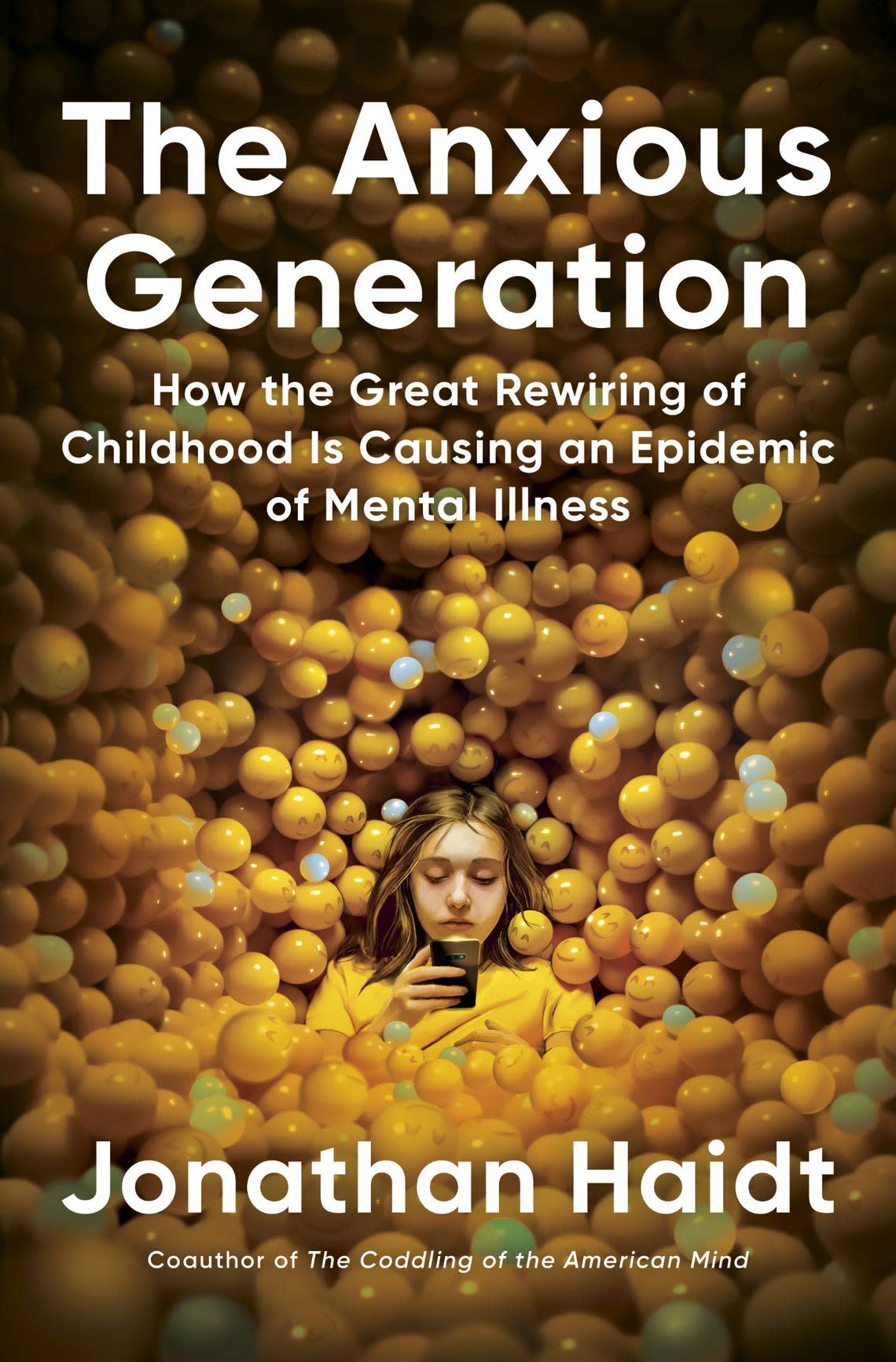Smartphones are stealing our children’s mental health. What should we do? | Opinion
What are smartphones stealing from our children?
A lot, in the eyes of Dr. Jonathan Haidt, a social psychologist at New York University. His book “The Anxious Generation,” published in March, makes a compelling case for the correlation between smartphone usage and the rising anxiety, depression, stunted development and social withdrawal of our youth.
Haidt traced the evolution of this harrowing pandemic in a recent podcast interview: “The original iPhone was an amazing Swiss Army knife,” he told David Remnick on the The New Yorker Radio Hour. “It was one of the greatest inventions of humankind. I pulled it out when I needed a tool.”
Haidt then maps its viral spread. In 2008, the App Store debuted. In 2009, “push notifications” came out. Between 2009 and 2010, Facebook added the “Like” button, Twitter added the “Retweet” button and phones came out with front-facing cameras. “Now the iPhone isn’t a tool,” Haidt adds, “it is actually a tool of mass distraction.”
Consequently, one of the things stolen from our children is their attention. Teenagers receive an average of 200-250 push notifications a day, dinging them day and night, even while they sleep. Many are obsessed with their phones. They sleep with the device and check it in the middle of the night.
It’s the first thing they use in the morning and the last before falling asleep. The phone’s continual presence pushes out time and energy for homework, sports, or learning a musical instrument, for example.
Unfortunately, we probably won’t see a broad diminishment of scrolling through Facebook feeds and TikTok videos. By repeatedly triggering dopamine pulses in our central nervous system’s pleasure centers, the scrolling and 60-second videos have become just too addictive.
Another of the things stolen from our children is their self-esteem. Think about it. Our children scroll through curated selfies of a red-carpet array of digital “friends.” Photoshopped pictures of people who look better than them, cooler than them, happier than them. No wonder our children withdraw into a shell. Comparison is the thief of confidence.
Another thing stolen from our children is their creativity. Captivated by rectangular windows to the world, children spend less time creating playground games that require them to learn the valuable skills of encouragement, teamwork and rule-enforcement negotiation.

Still another of the things stolen from our children is their mental health. By 2012, the data was alarming: a 130% increase in depression, and a doubling of anxiety. Severe psychiatric conditions such as schizophrenia and bipolar have also shot up. Most frighteningly, so have suicide rates.
Yet another thing stolen is their social skills. This soft skills underdevelopment is showing up in the workplace where managers are noticing that Gen Zers lack soft skills, such as problem solving, communicating with others, and asking for help. We also see it in Gen Z’s and young Millennials’ sharp marriage rate decline.
In the end, perhaps the biggest thing stolen is childhood itself. Someone once said: “When you give your child a smartphone, that is the moment their childhood ends.” What a tragedy. And it ushers in another: An abbreviated childhood leads to a protracted adolescence.
So, what’s a parent to do?
Haidt offers suggestions in an online video, found by Googling “Author Jonathan Haidt Discusses ‘The Anxious Generation.’ ” Pay special attention to the girl who is not only on the cusp of adolescence but on the cusp of addiction. Watch how her mother addresses both. You’ll be really encouraged.
I have only touched the surface of this most important issue. In a future column, I would like to take a deeper dive. But I need your help. Will you drop me a line and let me know your thoughts and concerns and perhaps a few practical things you have found helpful in discussing this and dealing with this with your own children? Thanks so much. Email me at bbyrd@texasfamilymed.com.
Brian Byrd, a former City Council member, is a physician in Fort Worth. Follow him on X: @BByrdFW .

Do you have an opinion on this topic? Tell us!
We love to hear from Texans with opinions on the news — and to publish those views in the Opinion section.
• Letters should be no more than 150 words.
• Writers should submit letters only once every 30 days.
• Include your name, address (including city of residence), phone number and email address, so we can contact you if we have questions.
You can submit a letter to the editor two ways:
• Email letters@star-telegram.com (preferred).
• Fill out this online form.
Please note: Letters will be edited for style and clarity. Publication is not guaranteed. The best letters are focused on one topic.
